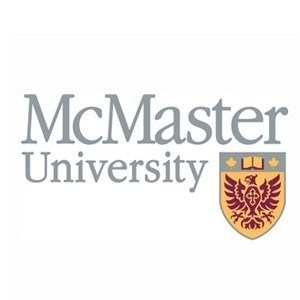Photos of university / #mcmasteru
The Bachelor of Science in Biology at McMaster University offers students a comprehensive understanding of the principles and processes that govern living organisms. This program is designed to provide a solid foundation in biological sciences, combining theoretical knowledge with practical laboratory experience. Students will explore diverse areas such as cellular and molecular biology, genetics, ecology, evolution, and organismal biology, preparing them for careers in research, healthcare, environmental management, education, and further academic pursuits. The curriculum emphasizes critical thinking, scientific inquiry, and experimental skills, enabling students to analyze complex biological systems and contribute to innovations in health, sustainability, and biotechnology. Through engaging coursework, hands-on laboratory projects, and opportunities for independent research, students develop a deep appreciation for the complexity of life and the scientific methods used to study it. The program also offers flexibility, allowing students to tailor their learning experiences through electives and specialization options, such as microbiology, neurobiology, or conservation biology. McMaster University’s advanced research facilities and collaborations with industry and research institutions provide students with valuable resources and networking opportunities. Graduates of the Biology program are well-equipped to pursue graduate studies, enter health sciences, or embark on careers in environmental consulting, scientific research, education, or biotechnology industries. A strong emphasis on interdisciplinary learning and experiential education ensures that students graduate with the skills and knowledge required to address real-world biological challenges and contribute meaningfully to society.
The Bachelor of Science in Biology at McMaster University offers a comprehensive and rigorous curriculum designed to provide students with a solid foundation in the fundamental concepts of biological sciences. This program encompasses a wide range of topics, including cell biology, genetics, ecology, evolution, microbiology, and physiology, preparing graduates for diverse careers in research, healthcare, environmental management, education, and biotechnology. Throughout the program, students engage in hands-on laboratory work, field studies, and research projects that foster critical thinking, problem-solving skills, and scientific communication abilities. The curriculum emphasizes understanding biological processes at molecular, organismal, and ecological levels, encouraging students to explore the complexities of living systems. Faculty members are active researchers who integrate recent scientific advances into their teaching, ensuring students receive current and relevant knowledge. The program also offers specialization options, such as environmental biology, molecular biology, and physiology, allowing students to tailor their education to their interests and career goals. Students benefit from state-of-the-art laboratories, research centers, and partnerships with industry and healthcare institutions, providing valuable experiential learning opportunities. Additionally, the program promotes interdisciplinary approaches, encouraging collaboration across scientific disciplines. With a strong emphasis on research, critical analysis, and effective communication, the Bachelor of Science in Biology at McMaster prepares graduates for advanced studies, professional careers, or entry into the workforce. The program also supports student development through various academic resources, mentorship, and extracurricular activities related to biological sciences, fostering a vibrant academic community dedicated to scientific discovery and innovation.
Students holding a B.Sc. Honours (4 year program) with a minimum B+ average in Biology, Biochemistry, Genetics, Microbiology or related fields are welcome to apply for graduate studies in Biology.
Your on-line application will be automatically submitted to the Academic Program Assistant (Graduate). In the event of “acceptance”, original transcripts must be submitted directly to Barb Reuter, Academic Program Assistant (Graduate) in the Department of Biology at the following address:
The majority of Master’s students in research degree programs receive substantial funding packages.
Note: If your status as a student changes (i.e. graduate, leave of absence, withdrawn), your eligibility for bursaries, academic grants, travel awards, and scholarships may be affected.
The Bachelor of Science in Biology at McMaster University offers students a comprehensive understanding of the living world, from molecules and cells to ecosystems and the planet as a whole. The program is designed to provide a rigorous scientific foundation, integrating theoretical knowledge with practical laboratory and field work. Students have the opportunity to explore diverse areas within biology, including genetics, ecology, evolution, physiology, and molecular biology. The curriculum emphasizes critical thinking, research skills, and scientific communication, preparing graduates for careers in health sciences, research, environmental management, education, and advanced studies.
The program typically begins with foundational courses in general biology, chemistry, and mathematics to establish core competencies. As students progress, they can choose specialized electives or honors tracks that align with their interests, such as molecular biology, microbiology, conservation biology, or neuroscience. Throughout their studies, students are encouraged to participate in research projects, internships, and co-op placements, gaining practical experience and professional skills highly valued in the job market.
McMaster University's Department of Biology is renowned for its research excellence, state-of-the-art laboratories, and collaborative environment. Faculty members are active researchers and mentors, offering students opportunities to engage in meaningful scientific inquiry. The program also benefits from the university's strategic partnerships with research institutes and industry leaders, providing pathways for internships and employment after graduation.
Students need to complete a specified number of credits to graduate, combining coursework, research projects, and possibly a thesis component depending on the specialization. The program typically takes four years to complete for full-time students. Graduates are well-equipped to pursue graduate studies, professional programs such as medicine, dentistry, or veterinary medicine, or enter careers in research institutes, environmental organizations, healthcare, and education.
In addition to academic coursework, the program emphasizes the development of analytical and data interpretation skills, proficiency in scientific writing, and collaboration abilities. McMaster's location offers students access to diverse ecosystems and opportunities for outdoor research, making experiential learning an integral part of the biology undergraduate experience. Overall, the Bachelor of Science in Biology at McMaster University aims to cultivate informed, skilled, and innovative biologists prepared to address complex biological challenges facing society today.









